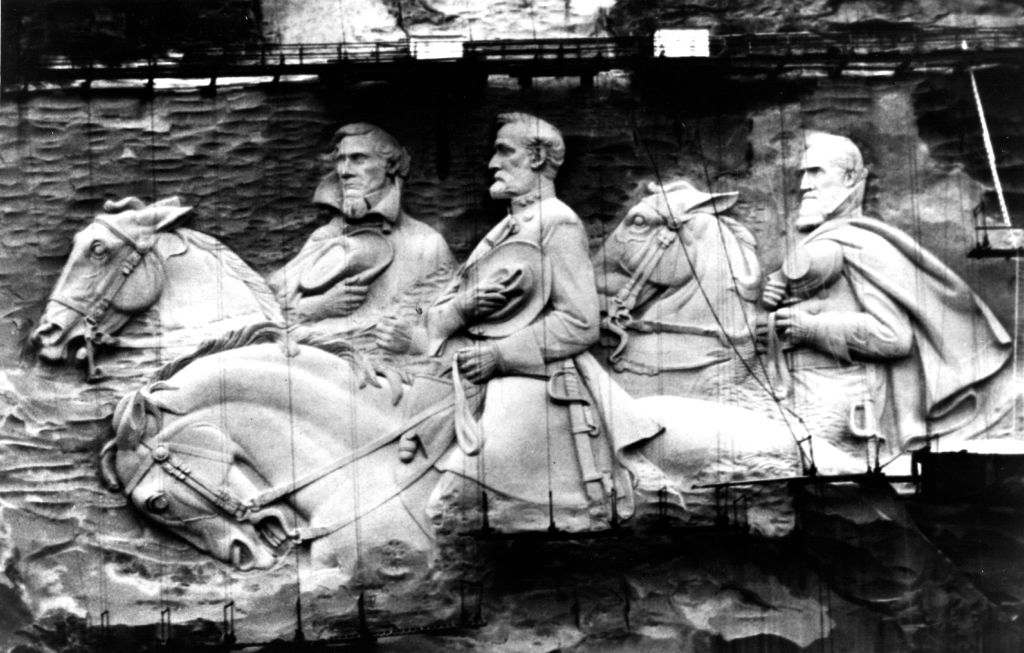A Confederate heritage group has filed a lawsuit against Georgia’s Stone Mountain Park, arguing that a new exhibition examining the site’s connections to slavery, segregation, and white supremacy violates state law.
The lawsuit was brought by the Georgia Division of the Sons of Confederate Veterans, which claims that the Stone Mountain Memorial Association’s decision to relocate Confederate flags and build what it calls a “truth-telling” show is at odds with the park’s original mandate to honor the Confederacy—protections that remain enshrined in Georgia law, according to the Associated Press.
Related Articles

Stone Mountain’s bas-relief carving—believed to be the largest Confederate monument in the country—features Jefferson Davis, Robert E. Lee, and Thomas “Stonewall” Jackson on horseback. While defenders say the monument honors Southern heritage, critics have long pointed to its ties to the Lost Cause mythology, which reframes the Confederacy’s secession as a fight for states’ rights rather than the preservation of slavery.
After the racial justice protests of 2020 prompted renewed scrutiny of Confederate symbols, the park’s board voted in 2021 to make limited changes. These included moving Confederate flags from a prominent walking trail and commissioning an exhibition that would contextualize the site’s history—including its links to the Ku Klux Klan, which famously held a cross-burning atop the mountain in 1915, the same year work on the monument began.
The Stone Mountain Memorial Association later hired Warner Museums, a Birmingham-based firm known for its civil rights work, to develop the exhibit. According to the firm’s proposal, the project would examine how the trauma of war and Reconstruction created fertile ground for the Lost Cause movement, and how groups like the United Daughters of the Confederacy and the Sons of Confederate Veterans helped promote it through public monuments, education campaigns, and support for segregation laws.
The exhibit will also feature stories of a Black community that lived near the base of the mountain after the Civil War—an attempt to broaden the narrative beyond the usual focus on the monument’s creators and subjects.
The Georgia legislature approved $11 million in 2023 to fund the exhibit and renovate Memorial Hall, the park’s museum building. Though the installation is not yet open to the public, the changes have already sparked backlash from Confederate heritage groups.
“When they come after the history and attempt to change everything to the present political structure, that’s against the law,” said Martin O’Toole, a spokesperson for the Sons of Confederate Veterans.
Stone Mountain Park, located just east of Atlanta, is marketed as a family attraction and hiking destination. The carving itself measures 190 feet wide and 90 feet tall and was completed in 1972, decades after sculptor Gutzon Borglum—who would go on to carve Mount Rushmore—began work on the project.
In 2021, the board also voted to change the park’s logo, replacing the carving’s image with a more neutral depiction of a lake on the property.
The lawsuit argues that the proposed exhibit amounts to a “complete repurposing” of Stone Mountain Park and disregards the Georgia legislature’s original intent in preserving the site.

